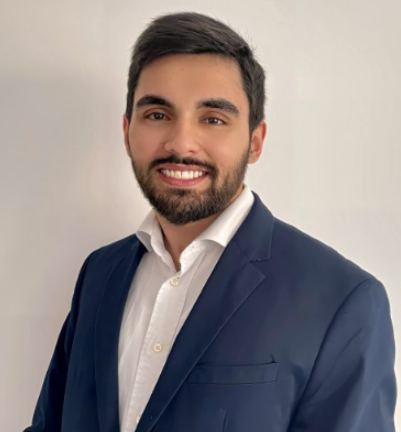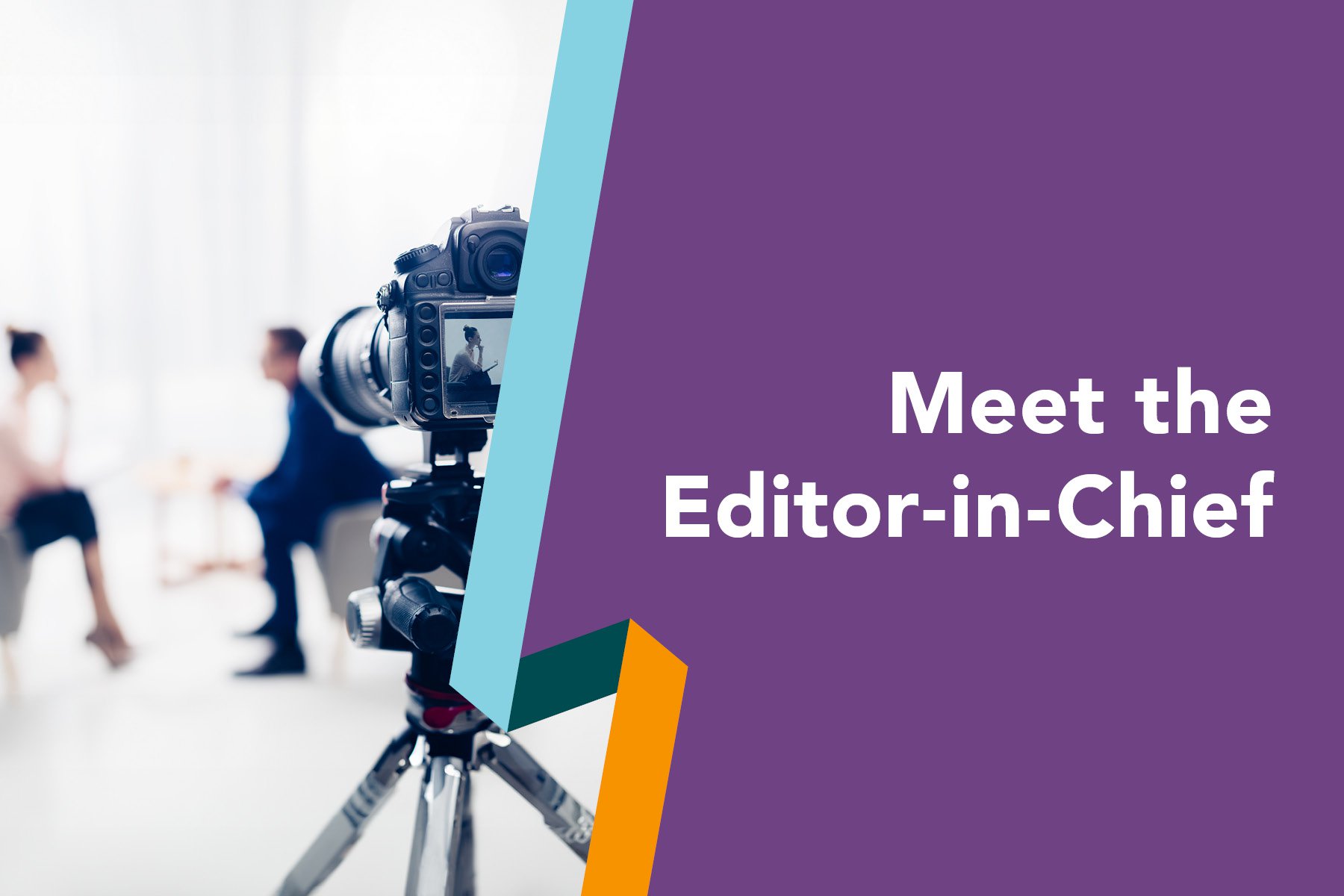Introducing Dr. Andrea Causio
As a medical doctor pursuing a PhD in Basic Biomedical Sciences and Public Health at Università Cattolica del Sacro Cuore in Rome, Italy, my research focuses on the exciting fields of personalized medicine, artificial intelligence in medicine, and digital health.
What led you to go into your research field?
I decided to pursue a degree in medicine, driven by a sincere desire to have a positive impact on the life of others. Once I graduated and started my residency, I had the chance to pursue research as part of my everyday activities. Here, I realized how intriguing it is to pave unexplored paths, particularly in novel fields such as the ones I mentioned. These factors led me to the decision of starting a PhD, aiming to culminate this passion of mine with a title.
What is a typical day for you like?
My typical day as a researcher starts at 8:30 a.m. with the inevitable email check. It’s a necessary evil, but it helps me stay on top of important communications and plan my day effectively. From there, I dive into some solo work until around 10 a.m.. This is my precious alone time, where I can really focus on learning more about polygenic risk scores and machine learning algorithms – two key areas that are driving innovation in personalized medicine.
At 10 a.m., the meetings and group work begin. Collaboration is such an important part of research, and I feel fortunate to work with a talented and dedicated team. We bounce ideas off each other, troubleshoot problems, and push each other to think creatively. It’s inspiring to be surrounded by people who share my passion for using technology to improve healthcare. Before the meeting, I usually head to the university café for a shot of espresso or a cappuccino. As an Italian, I take my coffee very seriously!
Around 12:30 p.m., I take a break for lunch. It’s a chance to recharge and refuel before diving back into work. The afternoon is usually a mix of more meetings and wrapping up tasks before I leave around 5:30 p.m.. It’s a full day, but it’s also an incredibly rewarding one.
Of course, working as a researcher is not without its challenges. Deadlines can be stressful, and there are always new problems to solve. But for me, the passion and internal motivation I feel for this work makes it all worth it. I can’t imagine doing anything else.
What motivates you the most about your current work?
One of the things I love most about my work is the opportunity to participate in European projects and activities with the Italian Society for AI in Medicine (SIIAM). It’s a chance to collaborate with researchers at a global level and learn from some of the brightest minds in the field. Through these projects, we’re working to advance the use of AI in medicine and develop new tools and techniques that can help doctors make more accurate diagnoses and tailor treatments to individual patients. It’s exciting to be at the forefront of this rapidly evolving field.
As a Karger Ambassador, I also enjoy sharing my work with a wider audience and helping to educate people about the potential of personalized medicine and AI in healthcare. Platforms like the Karger Experience blog are a great way to do that, and I’m honored to have the opportunity to share my story and insights with readers.
What motivated you to apply to become a Karger Ambassador?
My journey with Karger Publishers began when I published a paper in one of their journals, Molecular Syndromology. I was immediately impressed by the well-organized submission process, which stood out as exceptionally efficient and user-friendly compared to my experiences with other publishers. The opportunity to become a Karger Ambassador came unexpectedly through an email invitation. As I considered the role, I realized that my experiences in research and publishing could serve as a valuable case study for aspiring researchers and students. I was motivated by the idea of guiding others through the often-complex world of academic publishing and sharing insights that could help them navigate their own scientific journeys more effectively. Moreover, I saw the Ambassador Program as a chance to contribute to the broader scientific community by fostering open dialogue about the latest developments in my field. At the end of the day, being a researcher is more than just a job for me – it’s a passion. I feel incredibly fortunate to have the opportunity to do work that I love and that has the potential to make a real impact on people’s lives. And while there are certainly challenges and obstacles along the way, I wouldn’t trade it for anything. The thrill of discovery, the satisfaction of solving complex problems, and the knowledge that I’m contributing to something bigger than myself – that’s what keeps me going, day after day.
What advice would you give to a researcher or healthcare professional starting out?
To researchers and healthcare professionals just starting out, I’d emphasize the importance of cultivating curiosity and passion as your driving forces. Embrace collaboration wholeheartedly, as some of the most groundbreaking discoveries come from diverse teams. Develop resilience to weather the inevitable setbacks and challenges you’ll face in your career. Actively seek mentorship from experienced professionals in your field, as their guidance can be invaluable. Finally, never lose sight of the potential impact your work can have on people’s lives – let this be your motivation to persevere and excel in your chosen path.
What is your vision for your future?
My vision for the future is to continue pursuing research that has a positive impact on the world. I believe AI is poised to significantly shape our future, and I’m eager to play a role in writing that future through my work. In the coming years, I see myself at the forefront of AI applications in healthcare, contributing to groundbreaking developments that improve patient outcomes and revolutionize medical practices.
How do you switch off from a busy day at work?
I regularly tune into podcasts such as “The Waiting Room” by Karger and the Lex Fridman podcast, both of which provide valuable perspectives on cutting-edge research and technology. I also keep up with the latest publications shared in the group chat of the Italian Society of AI in Medicine, or on my personal feed on X, which helps me stay connected with developments in my field.
To switch off from busy workdays, I prioritize physical activity by going to the gym regularly. This not only helps me maintain my health but also clears my mind. Additionally, I have a passion for travel, both for work and leisure. Exploring new places, experiencing different cultures, and attending conferences allows me to broaden my horizons and gain fresh perspectives that often inspire my research. Finally, I enjoy reading books about topics that are not directly related to my job: I’m currently reading “A Brief History of Time” by Stephen Hawking, which offers fascinating insights into the universe and scientific thinking.
 Andrea Causio is a passionate medical doctor dedicated to advancing the field of preventive medicine and digital technologies for personalized prevention. As a resident in Preventive Medicine and a Ph.D. candidate in digital technologies for personalized prevention at Università Cattolica del Sacro Cuore in Rome, Italy, Andrea is at the forefront of innovative research and development in these areas.
Andrea Causio is a passionate medical doctor dedicated to advancing the field of preventive medicine and digital technologies for personalized prevention. As a resident in Preventive Medicine and a Ph.D. candidate in digital technologies for personalized prevention at Università Cattolica del Sacro Cuore in Rome, Italy, Andrea is at the forefront of innovative research and development in these areas.
With a strong belief in the power of optimism and mutual interests, Andrea fosters collaboration among diverse individuals to create a spark for a better future in healthcare. His involvement in numerous National and European projects showcases his commitment to leveraging digital technologies for the prevention and treatment of cancer and noncommunicable diseases.
As the founder of the Italian Society for Artificial Intelligence in Medicine (Società Italiana Intelligenza Artificiale in Medicina, SIIAM), Andrea has created a platform that brings together people from various backgrounds to network and collaborate towards common goals. This initiative demonstrates his leadership skills and vision for improving healthcare through the application of Artificial Intelligence.
In his role as the vice president of SIIAM, Andrea spearheads several research and development projects focused on AI in medicine. His expertise and dedication to this field have positioned him as a key figure in driving innovation and progress.
Additionally, Andrea leads multiple projects on NCD prevention at his university, further emphasizing his commitment to tackling some of the most pressing health challenges of our time.
Linkedin: https://www.linkedin.com/in/causio/
X/Twitter: https://twitter.com/causiondr
Instagram: @causioofficial






Comments
Share your opinion with us and leave a comment below!